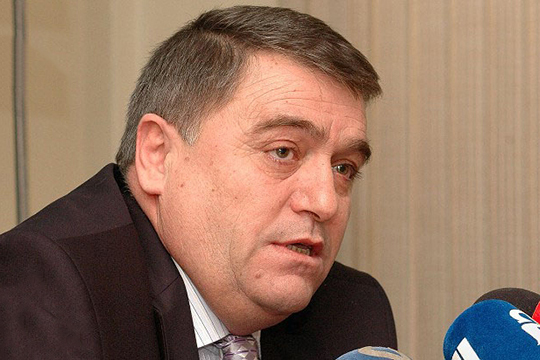Analyst and former Chairman of the NKR National Assembly Committee for, Vahram Atanesyan, talking about the closed hearings on Nagorno-Karabakh at the US Congress and Aliyev’s recent statement
– On January 6, closed hearings on Nagorno-Karabakh were held at the Committee for Foreign Relations of US House of Representatives. Committee Chairman Ed Royce called upon the US President Barack Obama’s administration to intensify the implementation of Royce-Engel proposal on Karabakh peace. They are: agreement between all parties on non-deployment of snipers in the contact line, to identify where the shooting is coming from thru the deployment of an OSCE investigation mechanism for a better monitoring of the ceasefire violations, deployment of additional OSCE observers deployed for the same purpose to which only Azerbaijan was against. In this round of tension in Karabakh-Azerbaijani and Armenian-Azerbaijani borders, can the holding of closed hearings at the US Congress and offering such solutions have any real impact for easing the tensions, especially since the Russian officials also expressed their concerns in the beginning of the year about the escalation of the situation in Nagorno-Karabakh?
– I so to speak can only express an expert opinion as I’m not actually aware of what discussions were arranged, which, incidentally, was also attended by the OSCE Minsk Group American co-chair Warlick. The impression is that Azerbaijan is trying to make the tension in the contact line an instrument and reach its desired outcome by the threat of the resumption of a wide-scale war. The problem, in my opinion, is whether the co-chair countries have a consolidated approach that Azerbaijan’s stance as such is unacceptable. In other words, whether the co-chairs acknowledge that the ceasefire agreement is the basis for the efficiency of the negotiation process. If yes, then Russia, the United States and France should jointly declare that they are the guarantor of the ceasefire agreement signed in May 12, 1994. In that case, Azerbaijan will have to reconsider its negotiating posture. The concerns displayed by individual countries, in my impression, create an allurement for Azerbaijan that the three-chairmanship is not united, which is an opportunity for Baku to constantly maneuver between the power centers and leave Nagorno-Karabakh problem in the conjuncture field. I do not think that the debates of the US Congress can ensure a practical result for the situation in the contact line but their political significance is appreciated.
– Generally, the Minsk Group co-chair the US seems to become active in its efforts for settling the issue. On January 1, the American co-chair James Warlick wrote on his Twitter page, “We need to intensify work towards a negotiated settlement in 2016. The parties say they are willing. If not now, when?” Are these regular concerns or given the geopolitical, as well as the economic developments, the Minsk Group can affect Azerbaijan?
Read also
– The Minsk Group has no mechanisms to influence the parties. The mediators operate in the frames of their mandate, which is to support for the conflict to be resolved via peace-negotiation and the final settlement satisfies everyone. But this is a theory, in practice, it is very difficult to combine the interests of everyone, except one. It is the maintenance of the fragile peace. In the current geopolitical situation, it is not possible to do more.
– To the point, yesterday, Azerbaijani President Ilham Aliyev announced that his and Serzh Sargsyan’s meeting in the year-end in Switzerland is again formal, he has accused Armenia of not willing to leave the “occupied territories”, he has also accused the OSCE Minsk Group of not putting pressure over Armenia. He has announced that in 2015, Azerbaijan has reached the maximum in the contact line, has dictated its will and in the near future, he will re-intensify its combat potential. Does it actually show that Aliyev makes a statement for the resumption of large-scale hostilities?
– Aliev’s statement, unfortunately, led to the death of our soldier in the contact line and I think that it is symbolic. In the very beginning, I said that Azerbaijan is trying to turn the threat of a full-scale war to a diplomatic tool while co-chair countries are not using the consolidated reverse opportunity. One can mention numerous reasons of why this is not done. Any presumption may be the case. But more essentially that Azerbaijani openly extremist approach on Nagorno-Karabakh loosens the grounds of the coexistence that were established in Helsinki in 1975. It is a challenge to civilization. In itself, Azerbaijan is not the country that is able to violate the principles of the European security system. Who motivates and sponsors Azerbaijan and how? Why does Baku constantly wangle the negotiation process? Here, the situation, I think, should be subjected to in-depth analysis. When we are trying to be abstract from the diplomatic wording, it leaves the impression that in the context for the sake of preserving peace, some undesirable for us developments are set forth and it seems to me that the undertakings by Azerbaijan to escalate the tension, if it can be said so, tend to raise the price for peace.
Interviewer Nelly GRIGORYAN, “Aravot” daily






















































